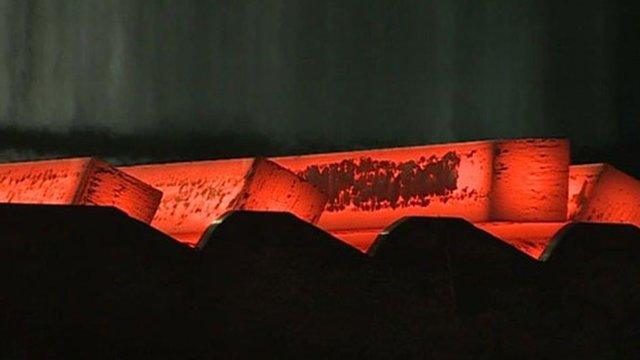Analysis: What does Celsa do in Cardiff?
- Published
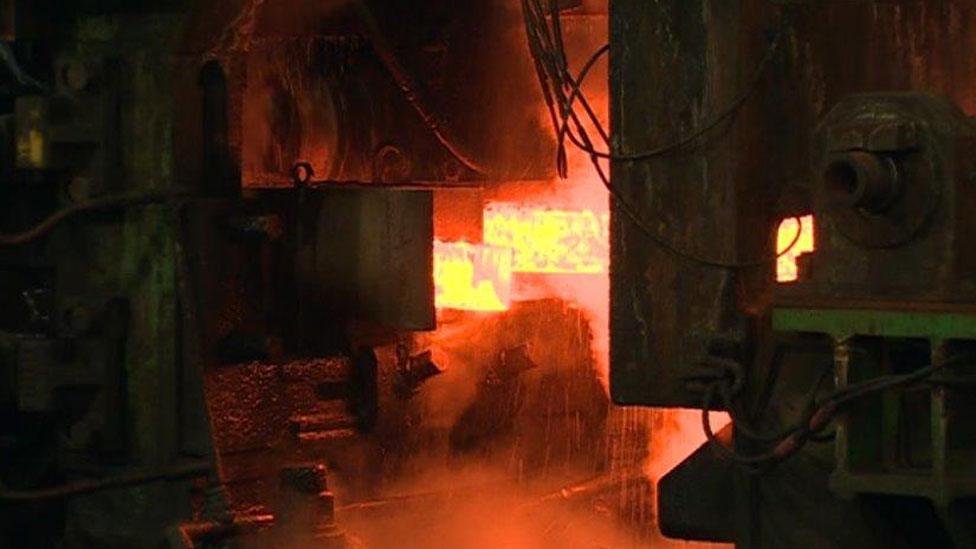
Celsa is Cardiff's major energy user
Celsa is a major employer in Wales with about 1,000 workers, 725 of them at its Cardiff site.
It has been caught up in the current crisis in the industry with cheap Chinese steel and the costs of energy and business rates in the UK making it very difficult to compete.
It takes scrap metal and recycles it into steel and it operates 24 hours a day, seven days a week.
Celsa's a high energy user, in fact it uses about 40% of Cardiff's energy.
The scrap becomes liquid then goes through a cooling process to be made into bars and coil used in construction projects including Vattenfall's Pen y Cymoedd wind development.
In January, I went round Celsa's Cardiff site to see it in operation from the scrap arriving to the new steel bars rolling off the line. Safety was paramount throughout the tour.
Steel production is an inherently dangerous business by its nature and companies go to great lengths to try to ensure safety.
But three workers from Celsa were taken to hospital by ambulance suffering from burns last July.
Celsa UK had sales of almost £500m in the last year and made losses of almost £17m before tax.
It contributes more than £105m a year to the Welsh economy and supports about 3,000 jobs indirectly.
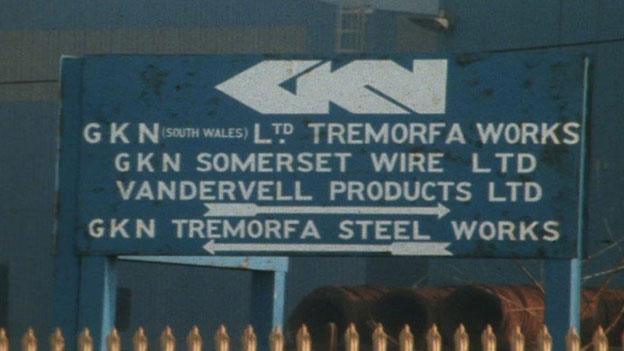
Celsa was previously owned by ASW and GKN
There has been steelmaking on site since late Victorian times but the current plant dates back 80 years.
The one-time GKN operation - including the Castle Works rod mill in East Moors Road - closed in 1978 but was taken over and re-opened by Allied Steel and Wire (ASW) in the early 1980s.
ASW went into receivership in 2002 with 800 job losses, but less than a year later Spanish steel company Celsa came in to re-start the mothballed plant.
- Published18 November 2015
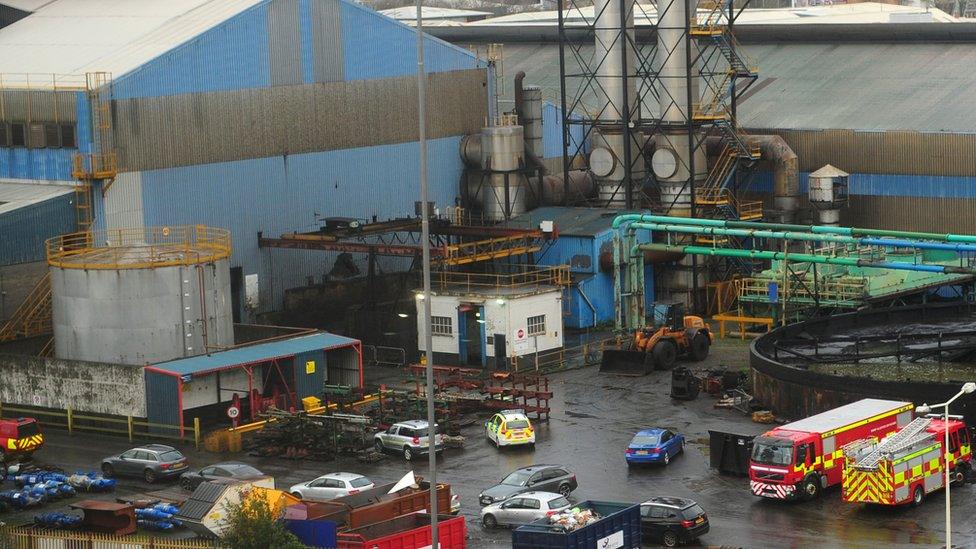
- Published18 November 2015
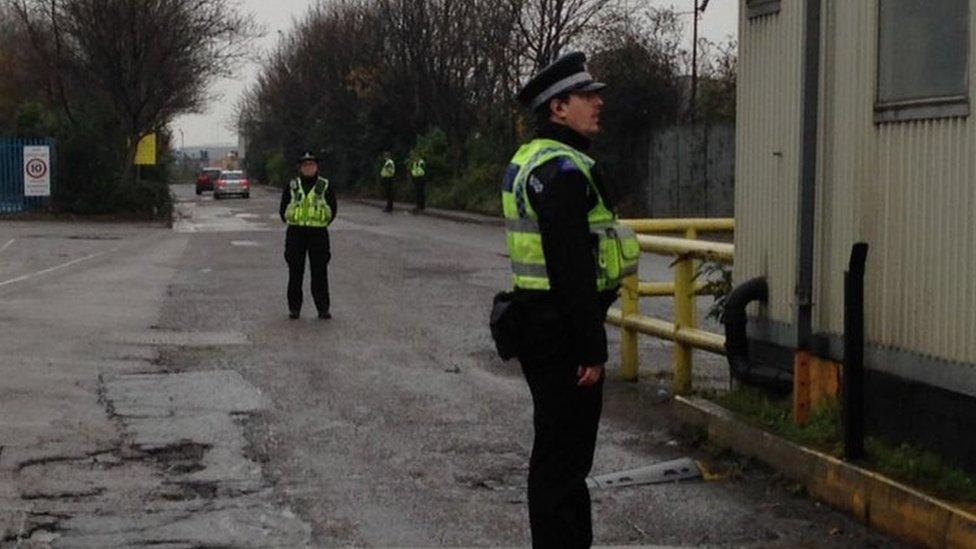
- Published3 December 2014
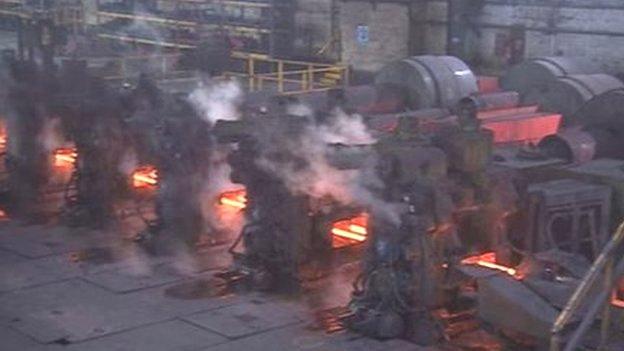
- Published18 November 2015

- Published2 February 2015
